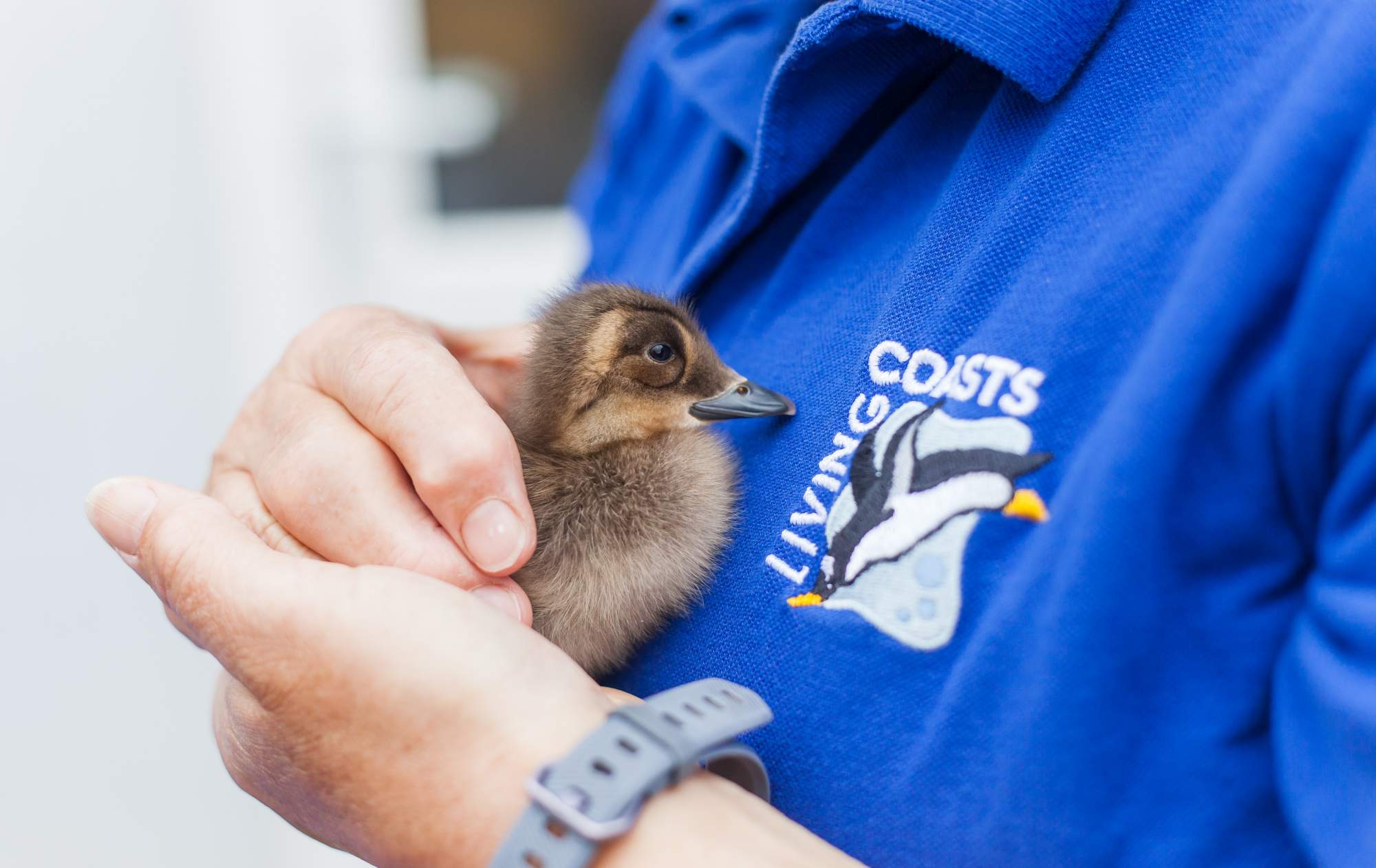Three eider ducklings are being hand reared at Living Coasts, Torquay’s coastal zoo. Right now they’re growing well on a diet of mini crickets and mealworms five times a day and specialist pellets.
Senior Keeper Lois Rowell is their surrogate mother: “They’re being hand reared because the females were all trying to lay in the same nest. We have a further two fertile eggs in the incubator – these were taken from the mother because the nest site is prone to flooding in the heavy rain. She is on dummy eggs and we hope to give her eggs back before they hatch.”
They have supervised access to water because – despite being ducks – they aren’t yet waterproof. Lois: “Preening helps to make them waterproof and they do this more after swimming.”
Spectacled eiders are rarely seen in zoos – but clearly these ducks have taken to the English Riviera. Living Coasts is home to three females and two males, with both males having fathered this year. These three ducklings are from two clutches: the first hatched on Thursday 28th June, the other two on Saturday 30th. Eggs take 24 days to hatch.
Lois: “We last bred four years ago and some of those offspring are the parents to these ducklings.” Spectacled eiders (Somateria fischeri) are large sea ducks found on the inshore waters and coastal tundra of Alaska and Siberia. They are threatened by hunting and climate change.
Living Coasts’ Curator Clare Rugg explained: “They are hard to keep because they have very particular needs, including a large salt water pool for swimming and displaying and thick vegetation in which to lay their eggs. We have been very successful with them over the years – partly because we have a great team of keepers here. We have moved many adult birds on to other collections.”
The adults have special glands which allow them to drink salt water, but these are not fully developed in ducklings, so youngsters require fresh water in which to learn to swim. This is one reason why the ducklings are being reared by keepers; another is their curious neighbours:
Clare: “They share the beach with the penguins, who can be very inquisitive over eggs. So we take in the eider eggs, hatch them, rear the ducklings and get them swimming. They go out on Penguin Beach in a crèche, so they can see the other ducks and get used to their home.” For more information go towww.livingcoasts.org.uk or ring 0844 474 3366.
You can join us on our social media pages, follow us on Facebook or Twitter and keep up to date with whats going on in South Devon.
Got a news story, blog or press release that you’d like to share or want to advertise with us? Contact us





























